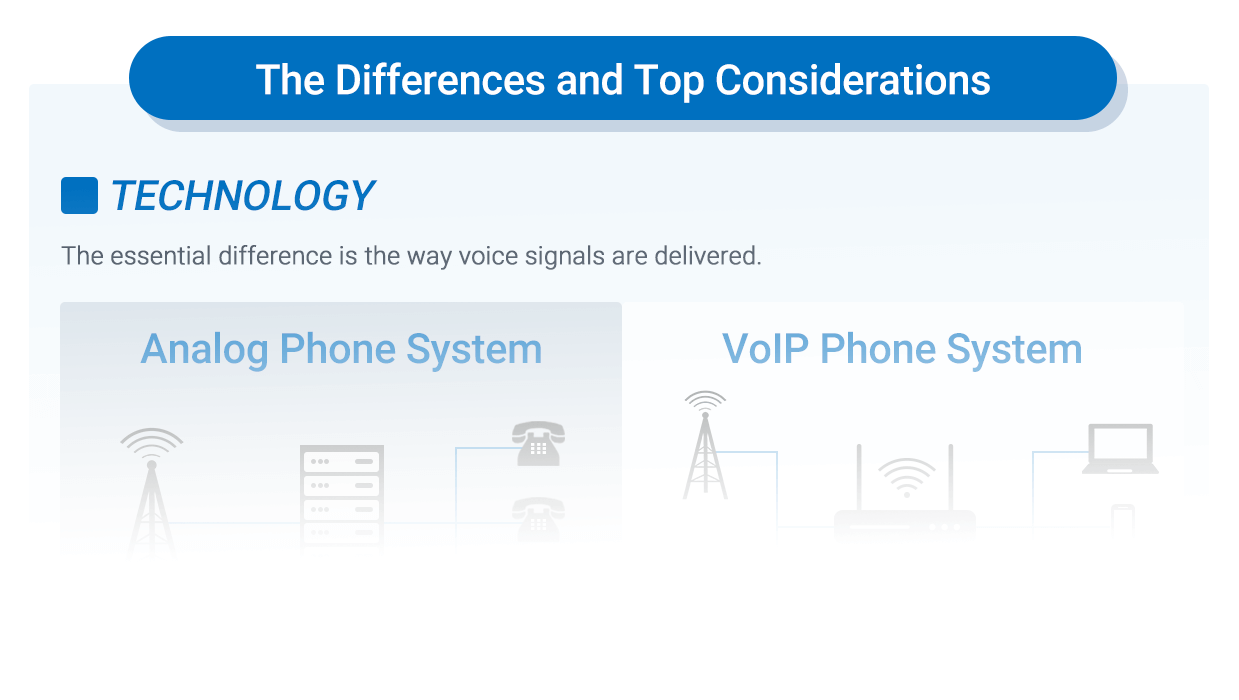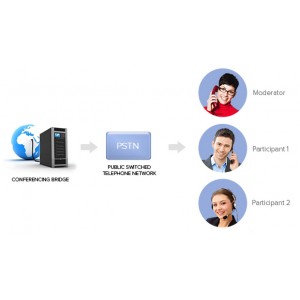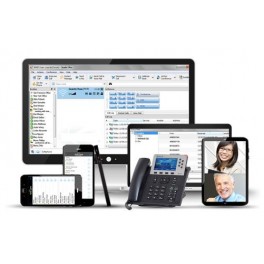Kategori
- SOLUTIONS
- OMNI CONTACT CENTER
- HOSTED | CLOUD PBX
- SIP TRUNKING
- SOLUSI HEMAT TELEPON
- IP PBX AND APPLIANCES
- IP PHONE
- CORDLESS IP PHONE
- WIFI IP PHONE
- VIDEO IP PHONE
- GIGABIT IP PHONE
- VIDEO CONFERENCE
- CONFERENCE CAMERA
- INTERACTIVE BOARD
- CONFERENCE PHONE
- CONFERENCE SYSTEM
- HEADSET
- VOIP GATEWAY
- ISDN E1 GW | CONVERT
- GSM GATEWAY
- IP INTERCOM
- IP PAGING
- NETWORK SWITCH
- WI-TEK
- Unmanaged PoE Switch
- Unmanaged ETH Switch
- Managed PoE Switch
- Reverse PoE Switch
- Passive PoE Switch
- No-Break PoE Switch
- Auto-Sense PoE Switch
- Cloud Mesh AP
- Cloud Mesh WiFi 6 Router
- Cloud L2 Managed PoE Switch
- Cloud L2 Managed Fiber Aggregation Switch
- Cloud Platform
- Mobile Cloud APP
- Cloud Mesh WiFi 6 Router
- Cloud L2 Managed PoE Switch
- Cloud L2 Managed Fiber Aggregation Switch
- Cloud Easy Smart Managed PoE Switch
- 4G LTE Outdoor CPE
- 4G LTE Indoor Wi-Fi Router
- UPS No-Break Solar PoE Switch
- Smart IoT Box
- Smart PoE Tech for WISP
- Outdoor Waterproof PoE Switch
- PoE Switch for CCTV
- Hi-PoE Long-Range PoE Switch for CCTV
- Fiber PoE Switch
- Full Gigabit PoE Switch
- SNMP Managed Gigabit PoE Switch
- Gigabit Ethernet Switch
- 2.5G/10G SWITCH
- Easy Smart Ethernet Switch
- Easy Smart PoE Switch
- Hardened PoE Switch
- Industrial Cloud Switch
- Superic Industrial Switch
- Mixed Industrial PoE Switch
- Boost Voltage Industrial PoE Switch
- 90W PoE Switch/PoE Injector/PoE Splitter
- Waterproof Industrial PoE Extender/PoE Inejctor/PoE Splitter
- PoE Injector,Splitter and Extender
- Gigabit SFP Fiber module
- Wireless Long-Range Transmit for CCTV IP Camera
- Fiber Optical Transceiver
- Indoor and Outdoor Cloud AP
- Cloud AP Controller/Enterprise Load Balance Gateway
- 3-10KM Long-Range Outdoor CPE for WISP
- 10-30KM Long-Range Outdoor CPE for WISP
- 24V Reverse PoE Switch
- SNMP Managed Gigabit Reverse PoE Switch
- Fiber Ethernet Switch
- SNMP Managed Gigabit Ethernet Switch
- GPON ONU PoE Switch
- HIMAX
- PROCET
- INDUSTRIAL POE Switch
- POE SWITCH
- GIGABIT ETH Switch
- OUTDOOR POE SWITCH
- HRUI
- WI-TEK
- WIRELESS AP
- CCTV | SURVEILLANCE
- SERVERS
- FIBER OPTIC & 3 PLAY
- ROUTER
- IP CAMERA
- SERVICES
- PA SYSTEM

PT. DIVATEL PRATAMA
Menara Kuningan 6th Floor,
Jl. H.R. Rasuna Said Blok X-7 Kav.5,
Jakarta Selatan 12940
Telp.: 021-30022778 (Hunting)
0852 8940 4589 (Mobile/WA)
Email: [email protected]
 User Online
User Online
Today Accessed: 6342
Total Accessed: 516568
Your IP: 216.73.216.142, 216.73.216.142
VoIP vs. Analog Phone System: The Differences and Top Considerations
written by at 2020-07-25
In a digital era of unified communications, what will traditional analog phone systems hold for your business? Is it the time to take a leap and upgrade to VoIP?
Not the great debate of the last decade, but something business owners will ask when buying phone service. To find the answer, you will want to understand the differences between VoIP vs Analog Phone System. You should compare the technologies on various criteria like technology, cost-effectiveness, availability and so on – so you can gain in-depth insights on how your choice will impact your business in the long term.
VoIP vs. Analog Phone System: An In-depth Comparison
1. Technology and Line Rental
The essential difference between analog phone service and VoIP (Voice Over Internet Protocol) is the way voice signals are delivered.
Unlike analog phone system – also commonly known as Plain Old Telephone Service (POTS) – that carries voice signals over copper wires, VoIP technology transmits voice traffic over Internet in the form of data packets. This means that VoIP business phone systems need only a live broadband connection to make and receive calls. Expensive landline rental can be eliminated and replaced with much cheaper SIP trunking services. And multimedia support also becomes easy and possible with VoIP. Advanced VoIP PBX system could support voice, video, and any form of multimedia as you can do on the Internet, while analog phone systems that rely on copper wiring mostly only support voice.
But exactly how much you can save with VoIP? Here are some statistics to get a straight-forward insight. Research suggests that businesses save an average of 50-75% when switching to VoIP from a landline. Although prices for landlines vary by providers, it usually costs around $50/month (going high as $100 per line). But most VoIP providers start their pricing around $25/month. The more phone lines your company require, the more money you will save with VoIP.
Related: Video: Understand What Is VoIP in A Minute
2. Features
Both VoIP and analog systems offer a core set of calling features, giving you the ability to send, receive, and route calls. But when it comes to advanced telephone services, VoIP goes far more beyond and usually comes at lower average costs.
Analog phone systems are built decades ago and hardly develop since the 21st century. Scaling features with such legacy systems is largely in the hand of your providers, let along that some advanced features are simply impossible with PSTN and ISDN.
Modern VoIP phone systems, by the way of contrast, deliver much greater functionality at a lower cost. In addition to advanced VoIP features like Find Me/Follow Me and Video Conferencing that analog phone systems incapable of, Unified Communications (UC) also gives VoIP a huge advantage.
By integrating voice, messaging, presence, cloud sharing, and more in one single platform, a UC-capable VoIP PBX could enable your team to communicate in an entirely new way, boosting business efficiency unprecedentedly.

3. Cost
The total cost of ownership is often a deciding factor in the debate of VoIP vs Analog Phone System. As a business owner, you’d love to save on costs. Unfortunately, traditional phone systems don’t help you much there.
Here is an overview of the cost comparison between VoIP and Analog Phone System.
| Considerations | Analog | VoIP |
| Line Setup | High. Landline setup usually charged at $50-100/line. | Low. VoIP trunk can be installed in minutes with little or no setup fee. |
| Maintenance Cost | High. Maintenance has to be done by a technician onsite, which is expensive. | Low. With a hosted VoIP solution, your provider will responsible for all the maintenance and update. |
| Call Pricing | Higher monthly service fees and calling rates. | International and mobile calls typically charged at a much lower rate. Potential 60% lower phone bills. |
| Add-ons | Limited options for add-ons. Most advanced features cost extra or require additional hardware. | Rich advanced features available at no additional cost (auto attendant, softphone application, etc.) |
Buying analog is cheaper in the short-term but will lock you into a closed system that requires consistent integration efforts. And the total cost of ownership will only sour with higher monthly phone bill and recurring maintenance fees.
It’s estimated that small businesses that switch to VoIP reduce their local call costs by up to 40%, and international call costs by up to 90%.
4. Location Flexibility and Mobile Use
Analog phone systems aren’t just costing your business extra on landline phone bill. Its inability to deliver geographical flexibility can incur monumental business loss in the long run.
According to CBInsights in 2018, the failure to expand is one of the top reasons why 80% of startups failed in their first year. Many of its analyses suggest that these failed startups were out-competed because of their inability to break physical borders and offer labor mobility.
That sounds bad for businesses with analog systems and it really does. Dependent on the landline, analog phone systems limits you to a wired office phone. In order to make a move or expand your business to a new location, you will need to buy extra hardware and phone lines. Even a simple relocation of extensions will require rewiring a punchboard by a professional. Worse still, analog systems provide little essential mobility features for remote and mobile workers to stay productive.
Things get different with VoIP, however. It delivers business-enhancing capability that legacy phone systems hardly achieve:
Easy Scalability: Expand your phone system without new costly equipment and wiring. VoIP is incredibly scalable and allows you to add or remove users/lines with ease.
Geographical Flexibility: Routing calls over Internet connection, VoIP removes barriers to communication expansion with virtual numbering. You can get “Global Local Number” from the country of your choice and make it ring to your VoIP service. This makes it possible for businesses to have virtual local presence anywhere in the world.
Extension Mobility: VoIP services usually offer a mobile app (softphone) that analog phone systems don’t. With such application, your employees can bring their desk phone with them via their own smartphone or computer anywhere anytime.
Related: Discover 10 Fabulous Things a Modern VoIP Phone System Can Do for You
5. Reliability – VoIP vs Analog Phone System. What will Future Hold for You?
Word gets around that the one slight edge that analog has over VoIP is its reliability. And it’s indeed true in the past decades, as analog systems always have a consistent performance on call quality. But in the long-run, it’s NOT true.
The technology that analog phone systems rely on – landlines – are becoming obsolete and increasingly losing support. Many providers including BT (UK), AT&T / Verizon (US), NTT (Japan), DE Telekoms (Germany) have announced the discontinuation of line-based telephony. And the global shutdown on the ISDN network is estimated to come by 2030.
This means that the worldwide transition to broadband and IP services has already begun. Your analog phone system (landline) might be reliable today, but it may lose the edge in the next decades with less support.
In contrast, VoIP business phone systems, with continuous innovation and improvement, has greater potential to perform well for years to come. In fact, according to a new report from market research firm Global Market Insights, the worldwide VoIP market will hit 55 billion dollars by 2025, with 175% increase from the current level of $20 billion. And greater market size means greater investment and efforts to improve the technology.
Regarding the hype that analog is more reliable because the landline stability, as the internet technology continuously develops, that is the one to be clarified and adjusted. VoIP phone systems have well over 99.99 percent uptime (time in which the system is in operation). Broadband, 4G and now 5G are there to make your Internet stable and reliable which leads to improvement in the overall VoIP phone system.
Comments
 021-30022778
021-30022778
![]() SALES & MARKETING :
SALES & MARKETING :
Indra Ilham - Ext. 111
John - Ext. 110
DIVATEL - 0851-7306-0800
Ismed S. - 0852-8940-4589
Dipa A. - 0821-1063-2366
Indra Ilham - 0818-188-818-59
John - 0812-1070-3999
![]() INTERACTIVE DISPLAY :
INTERACTIVE DISPLAY :
Dharma - 0878-7753-7902
Carlo - 0878-8796-8114
![]() EMAIL :
EMAIL :
Keranjang Belanja
Diskon
-

Escene ES290N
Rp 750.000 Rp 725.000
Produk baru
Dinstar UC200 Pro - IP PBX
- UC200 Pro is a powerful and reliable IP PBX designed to meet the...
Lebih lanjut Distributor Dinstar C60U-W IP Phone WiFi Murah Berkualitas Promo 2025
- Distributor Dinstar C60U-W IP Phone WiFi Murah Berkualitas Promo 2025...
Lebih lanjut Milesight MS-C5321-FPE — AI Multi-Sensor Multi-Directional Camera 4×5MP
- Dapatkan pengawasan 360° menyeluruh dengan Milesight MS-C5321-FPE,...
Lebih lanjut
















































































Leave a comment